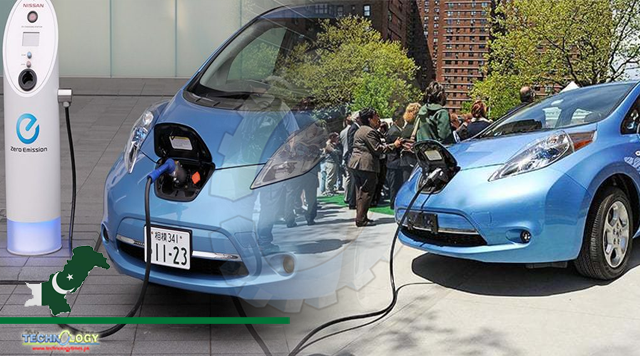Electric vehicles (EVs) already have caught the interest of vast populations in industrialized countries, and the Pakistani public is anticipating their arrival with bated breath. In terms of market capitalization, Tesla has overtaken all worldwide automobile manufacturers.

By John Kowalsky
The financial incentive provided by western governments in the kind of hard cash to customers has been a crucial element in the fast adoption of electric vehicles.
Despite these advantages, the transition to fully electric vehicles from traditional gasoline-powered vehicles will be slow. The biggest drawbacks of electric vehicles are their massive price and short range (distance covered between charges). As Pakistan considers a large-scale adoption of electric vehicles, there is a necessity to learn from the experiences of other countries.
Tesla’s initial success was partly owing to a profitable cash subsidy provided directly to the consumer by the governments of the United States and Canada, which made a highly expensive automobile more affordable to the buyer. The popularity of electric vehicles is also owing to increased awareness of global warming, the repercussions of which have already begun to manifest.
Another issue is the low cost of electricity, which has resulted from a dramatic decline in the cost of solar as well as wind turbines. Tesla installed its own free charging stations in several areas, making its goods even more appealing.
None of these considerations are likely to be on the minds of Pakistani consumers, who are primarily interested in Electric Vehicles because they are the latest trend.
Before jumping on the EV bandwagon in a major way, Pakistan must analyze all of the variables, as EVs will be a significant burden on the country’s import bill due to their high cost.
Pakistan’s fuel import cost will be decreased if conventional vehicles are replaced with electric vehicles, as most of the final petroleum goods used in transportation are imported. Solar roof-tops allow homeowners to charge their electric vehicles for free provided the weather is shining.
However, since Pakistan has a tiny GHG footprint, it will not make a significant contribution to global GHG reduction. Furthermore, because most of our electrical generation is still based on fossil fuels, charging EVs with grid-based power will not result in a significant reduction in GHG emissions. Commercial charging points will need to be completely self-sufficient in solar and wind energy to achieve any substantial reduction in GHG emissions.
EVs can be powered in two ways: slowly at home using a standard power outlet, or quickly at the commercial charging station. It takes a long time to charge them at home, and rapid charging facilities, if accessible, can take up to one hour. Furthermore, charging stations would need to be readily available on city streets and highways, which will come at a great cost to the country.
Originally published at Try market research